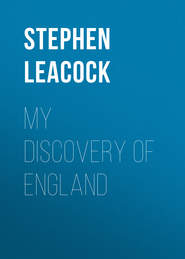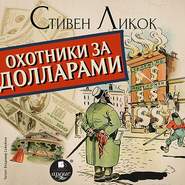По всем вопросам обращайтесь на: info@litportal.ru
(©) 2003-2024.
✖
Frenzied Fiction
Автор
Год написания книги
2019
Настройки чтения
Размер шрифта
Высота строк
Поля
The Authority was speaking very deliberately. He even paused at this point and lighted a cigarette, while we all listened breathlessly. We felt that we had got the thing to a focus at last.
“Only one outcome—a Staatenbund.”
“Great heavens,” I said, “not a Staatenbund!”
“Undoubtedly,” said the Authority, puffing quietly at his cigarette, as if personally he wouldn’t lift a finger to stop the Staatenbund if he could, “that’s the end of it, a Staatenbund. In other words, we are back where we were before the Vienna Congress!”
At this he chuckled heartily to himself: so the rest of us laughed too: the thing was too absurd. But the Authority, who was a man of nice distinctions and genuinely anxious to instruct us, was evidently afraid that he had overstated things a little.
“Mind you,” he said, “there’ll be something left—certainly the Zollverein and either the Ausgleich or something very like it.”
All of the men gave a sort of sigh of relief. It was certainly something to have at least a sort of resemblance or appearance of the Ausgleich among us. We felt that we were getting on. One could see that a number of the men were on the brink of asking questions.
“What about Rumania,” asked Nelles—he is a banker and interested in government bonds—“is this the end of it?”
“No,” said the Authority, “it’s not the end of Rumania, but it is the end of Rumanian Irridentismus.”
That settled Nelles.
“What about the Turks?” asked Rapley.
“The Turks, or rather, I suppose it would be more proper to say, the Osmanli, as that is no doubt what you mean?” Rapley nodded. “Well, speaking personally, I should say that there’s no difficulty in a permanent settlement in that quarter. If I were drawing up the terms of a treaty of peace meant to be really lasting I should lay down three absolute bases; the rest needn’t matter”—the Authority paused a moment and then proceeded to count off the three conditions of peace on his fingers—“These would be, first, the evacuation of the Sandjak; second, an international guarantee for the Capitulations; and third, for internal matters, an arrangement along the lines of the original firman of Midhat Pasha.”
A murmur of complete satisfaction went round the group.
“I don’t say,” continued the Eminent Authority, “that there wouldn’t be other minor matters to adjust; but they would be a mere detail. You ask me, for instance, for a milice, or at least a gendarmerie, in the Albanian hinterland; very good, I grant it you at once. You retain, if you like, you abolish the Cypriotic suzerainty of the Porte—all right. These are matters of indifference.”
We all assumed a look of utter indifference.
“But what about the Dardanelles? Would you have them fixed so that ships could go through, or not?” asked Rapley.
He is a plain man, not easily put down and liking a plain answer. He got it.
“The Dardanelles,” said the Authority, “could easily be denationalized under a quadrilateral guarantee to be made a pars materia of the pactum foederis.”
“That ought to hold them,” I murmured.
The Authority felt now that he had pretty well settled the map of Europe. He rose and shook hands with us all around very cordially. We did not try to detain him. We felt that time like his was too valuable to be wasted on things like us.
“Well, I tell you,” said Rapley, as we settled back into our chairs when the Great Authority had gone, “my own opinion, boys, is that the United States and England can trim Germany and Austria any day in the week and twice on Sunday.”
After which somebody else said:
“I wonder how many of these submarines Germany has, anyway?”
And then we drifted back into the humbler kind of war talk that we have been carrying on for three years.
But later, as we walked home together, Rapley said to me:
“That fellow threw a lot of light on things in Europe, didn’t he?”
And I answered:
“Yes.”
What liars we all are!
IV. Personal Adventures in the Spirit World
I do not write what follows with the expectation of convincing or converting anybody. We Spiritualists, or Spiritists—we call ourselves both, or either—never ask anybody to believe us. If they do, well and good. If not, all right. Our attitude simply is that facts are facts. There they are; believe them or not as you like. As I said the other night, in conversation with Aristotle and John Bunyan and George Washington and a few others, why should anybody believe us? Aristotle, I recollect, said that all that he wished was that everybody should know how happy he was; and Washington said that for his part, if people only knew how bright and beautiful it all was where he was, they would willingly, indeed gladly, pay the mere dollar—itself only a nominal fee—that it cost to talk to him. Bunyan, I remember, added that he himself was quite happy.
But, as I say, I never ask anybody to believe me; the more so as I was once an absolute sceptic myself. As I see it now, I was prejudiced. The mere fact that spiritual seances and the services of a medium involved the payment of money condemned the whole thing in my eyes. I did not realize, as I do now, that these medii, like anybody else, have got to live; otherwise they would die and become spirits.
Nor would I now place these disclosures before the public eyes were if not that I think that in the present crisis they will prove of value to the Allied cause.
But let me begin at the beginning. My own conversion to spiritualism came about, like that of so many others, through the more or less casual remark of a Friend.
Noticing me one day gloomy and depressed, this Friend remarked to me:
“Have you any belief in Spiritualism?”
Had it come from anyone else, I should have turned the question aside with a sneer. But it so happens that I owe a great deal of gratitude to this particular Friend. It was he who, at a time when I was so afflicted with rheumatism that I could scarcely leap five feet into the air without pain, said to me one day quite casually: “Have you ever tried pyro for your rheumatism?” One month later I could leap ten feet in the air—had I been able to—without the slightest malaise. The same man, I may add, hearing me one day exclaiming to myself: “Oh, if there were anything that would remove the stains from my clothes!” said to me very simply and quietly: “Have you ever washed them in luxo?” It was he, too, who, noticing a haggard look on my face after breakfast one morning, inquired immediately what I had been eating for breakfast; after which, with a simplicity and directness which I shall never forget, he said: “Why not eat humpo?”
Nor can I ever forget my feeling on another occasion when, hearing me exclaim aloud: “Oh, if there were only something invented for removing the proteins and amygdaloids from a carbonized diet and leaving only the pure nitrogenous life-giving elements!” seized my hand in his, and said in a voice thrilled with emotion: “There is! It has!”
The reader will understand, therefore, that a question, or query, from such a Friend was not to be put lightly aside. When he asked if I believed in Spiritualism I answered with perfect courtesy:
“To be quite frank, I do not.”
There was silence between us for a time, and then my Friend said:
“Have you ever given it a trial?”
I paused a moment, as the idea was a novel one.
“No,” I answered, “to be quite candid, I have not.”
Neither of us spoke for perhaps twenty minutes after this, when my Friend said:
“Have you anything against it?”
I thought awhile and then I said:
“Yes, I have.”
My Friend remained silent for perhaps half an hour. Then he asked:
“What?”
Другие электронные книги автора Стивен Батлер Ликок
Другие аудиокниги автора Стивен Батлер Ликок
Рассказы




 4.67
4.67













